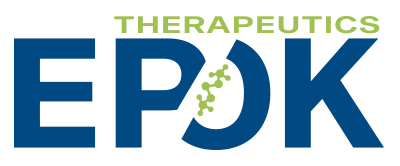
Focus

Anemia Treatment Innovation
Anemia, particularly in patients with chronic kidney disease (CKD), cancer, and those undergoing chemotherapy or HIV treatment, is traditionally managed using recombinant erythropoietin (EPO). While these therapies target the erythropoietin receptor (EPOR), they present several limitations, including frequent dosing, high treatment costs, and potential safety concerns due to off-target effects.
EPOK Therapeutics is advancing the development of its lead candidate, EPRA-0322,a mono-specific antibody designed as a potent EPOR agonist. Preclinical studies suggest EPRA-0322 may allow for low-dose, infrequent subcutaneous administration (4-6 times per year), offering a more convenient therapeutic option for patients. Importantly, EPRA-0322 is engineered to avoid activation of non-target receptors, addressing a critical limitation of existing EPO therapies.
By reducing the risk of off-target effects, EPRA-0322 has the potential to offer a safer, more targeted solution for managing anemia in vulnerable populations, such as CKD and cancer patients.
Key Points for Anemia Treatment Innovation:
Low-Dose, Reduced-Frequency Subcutaneous Administration:
EPRA-0322 is a highly specific erythropoietin receptor (EPOR) agonist designed for low-dose, infrequent subcutaneous administration (4-6 times per year). Preclinical studies have emonstrated promising efficacy and long-term stability.
Selective EPOR Targeting:
Unlike traditional recombinant erythropoietin (EPO) therapies, EPRA-0322 avoids activating non-erythropoietic receptors. This selective approach could lead to a more favorable safety profile compared to current therapies.
Enhanced Safety Profile:
EPRA-0322’s high specificity for the EPOR is designed to reduce off-target effects, addressing some of the safety concerns associated with existing EPO-based treatments. This focused mechanism could result in a more controlled therapeutic response.
Cost and Accessibility Considerations:
Although still in preclinical development, initial analyses suggest that the reduced dosing frequency and optimized production processes could potentially make EPRA-0322 a more sustainable and accessible option for patients with chronic anemia.

Targeting Phosphate Wasting Disorders with Precision
Phosphate wasting disorders, such as hypophosphatemic rickets, are often driven by excessive activity of fibroblast growth factor 23 (FGF23). While current therapies—like anti-FGF23 antibodies—effectively neutralize FGF23, they may also interfere with its critical physiological functions, potentially leading to unintended side effects.
At EPOK Therapeutics, we are advancing a next-generation solution: KLOT-1123. This investigational antibody is uniquely engineered to selectively inhibit FGF23 signalling without reducing circulating FGF23 levels. By preserving the hormone’s essential biological roles while curbing its pathological activity, KLOT-1123 aims to offer a more targeted and physiologically balanced treatment for phosphate wasting disorders.
